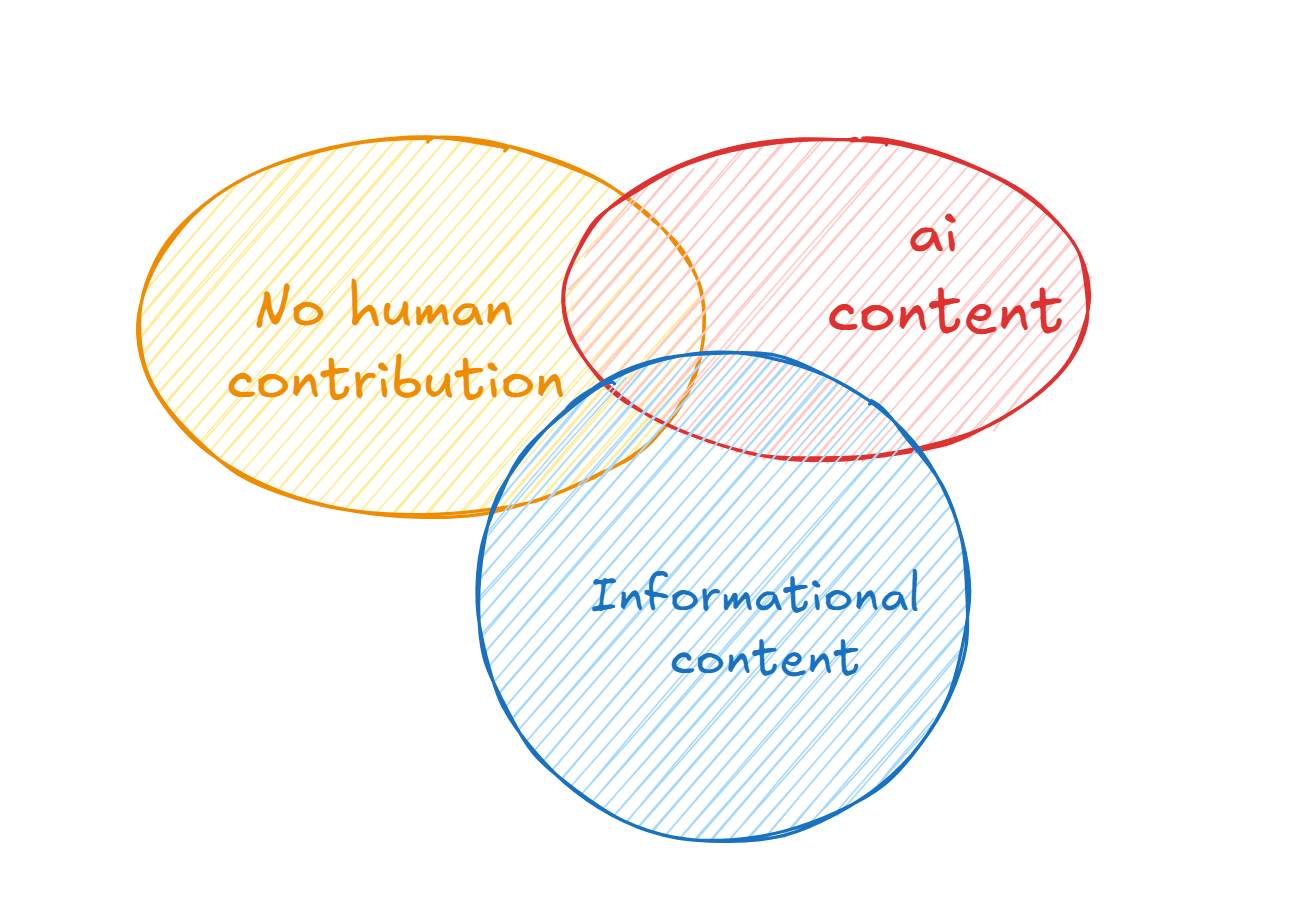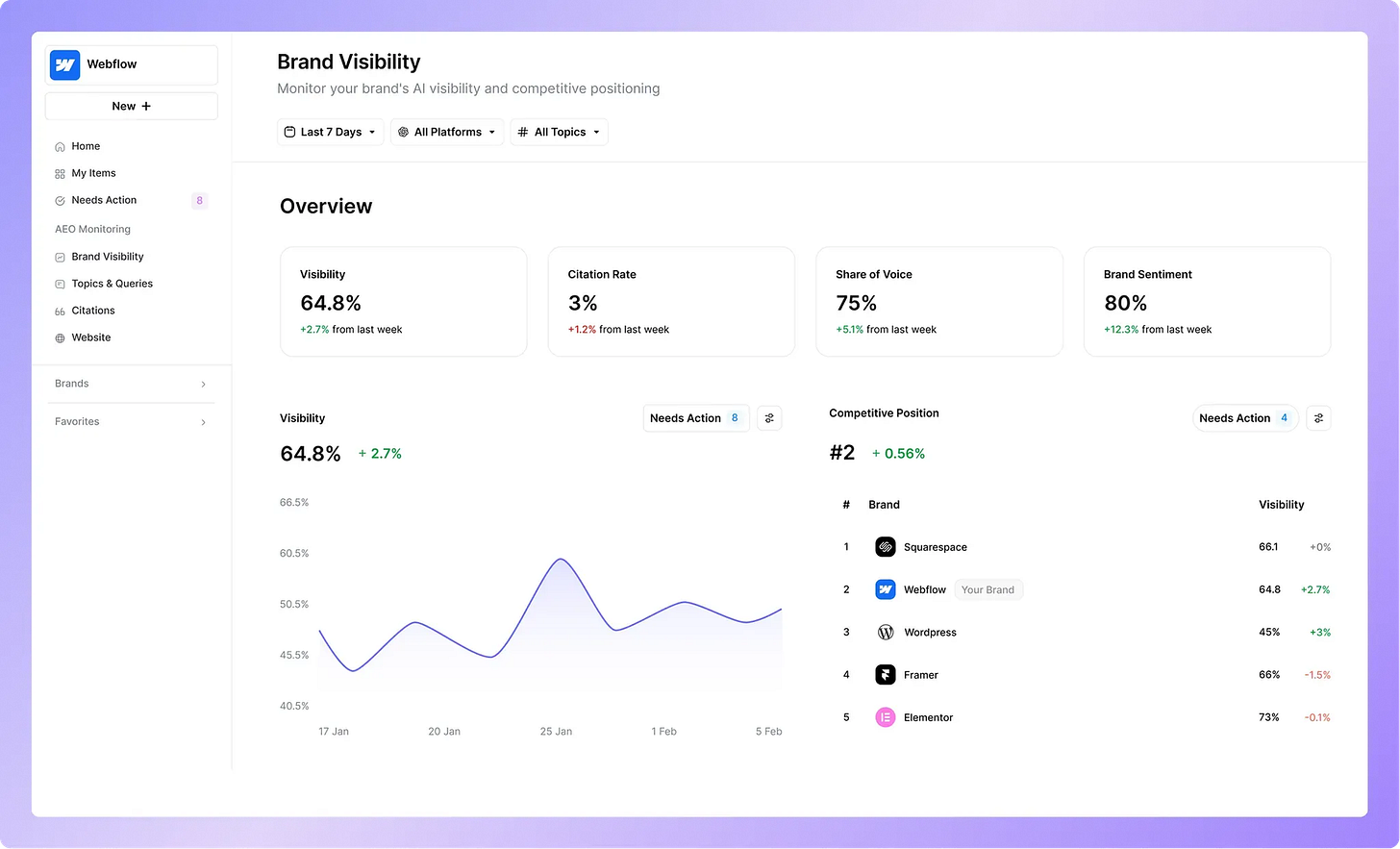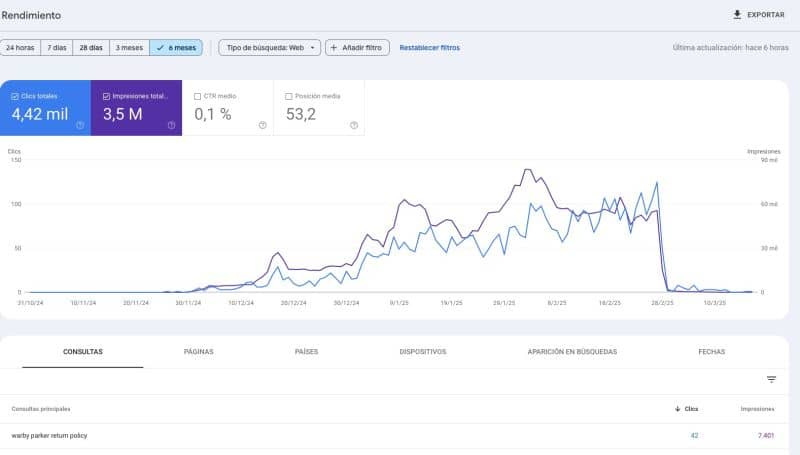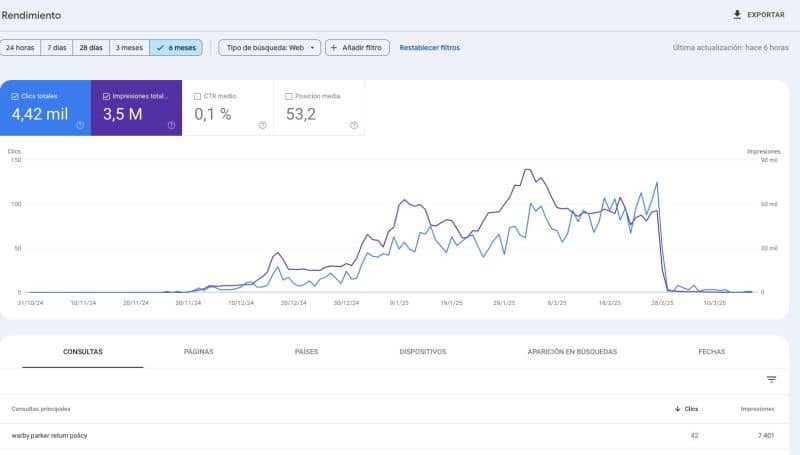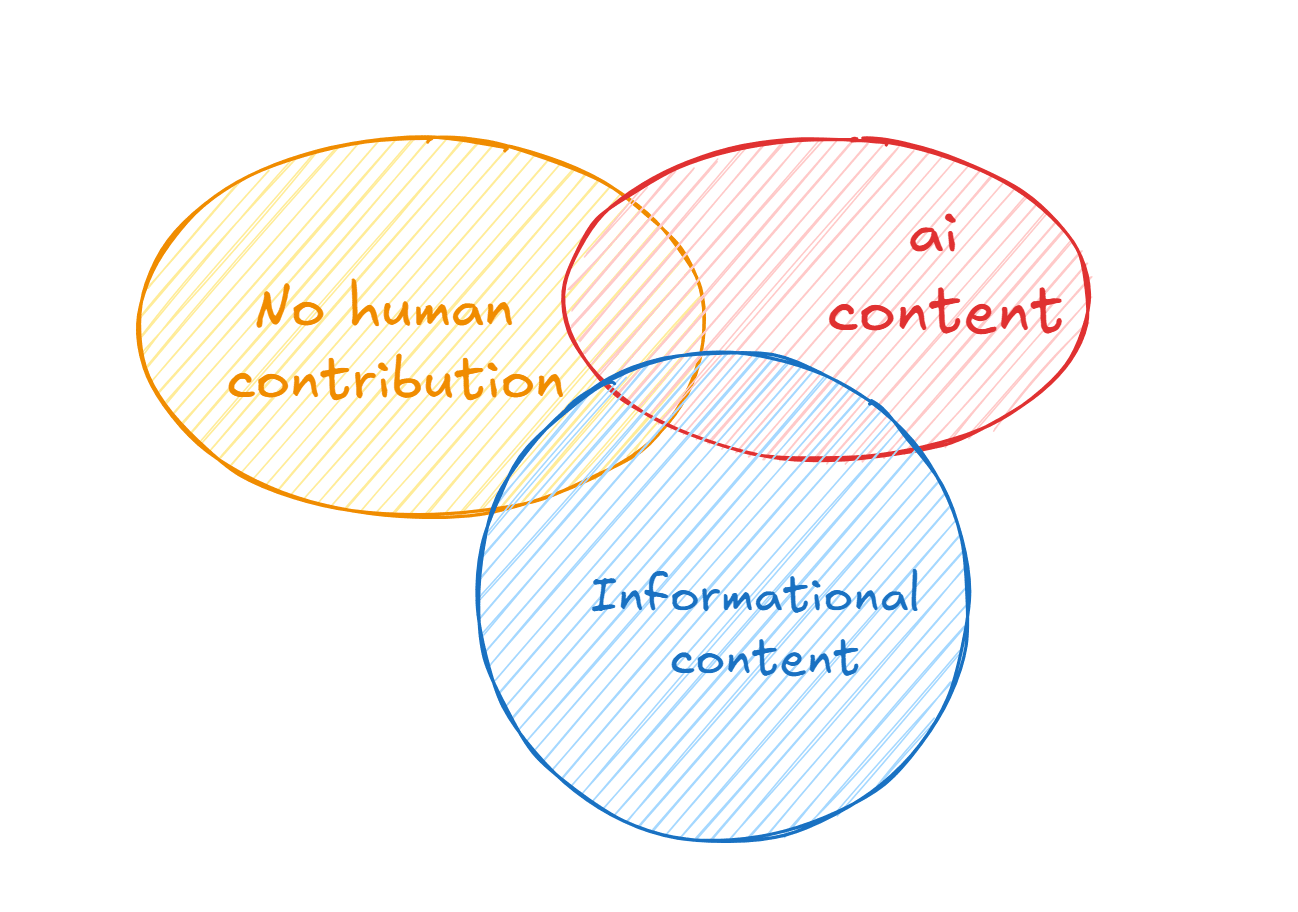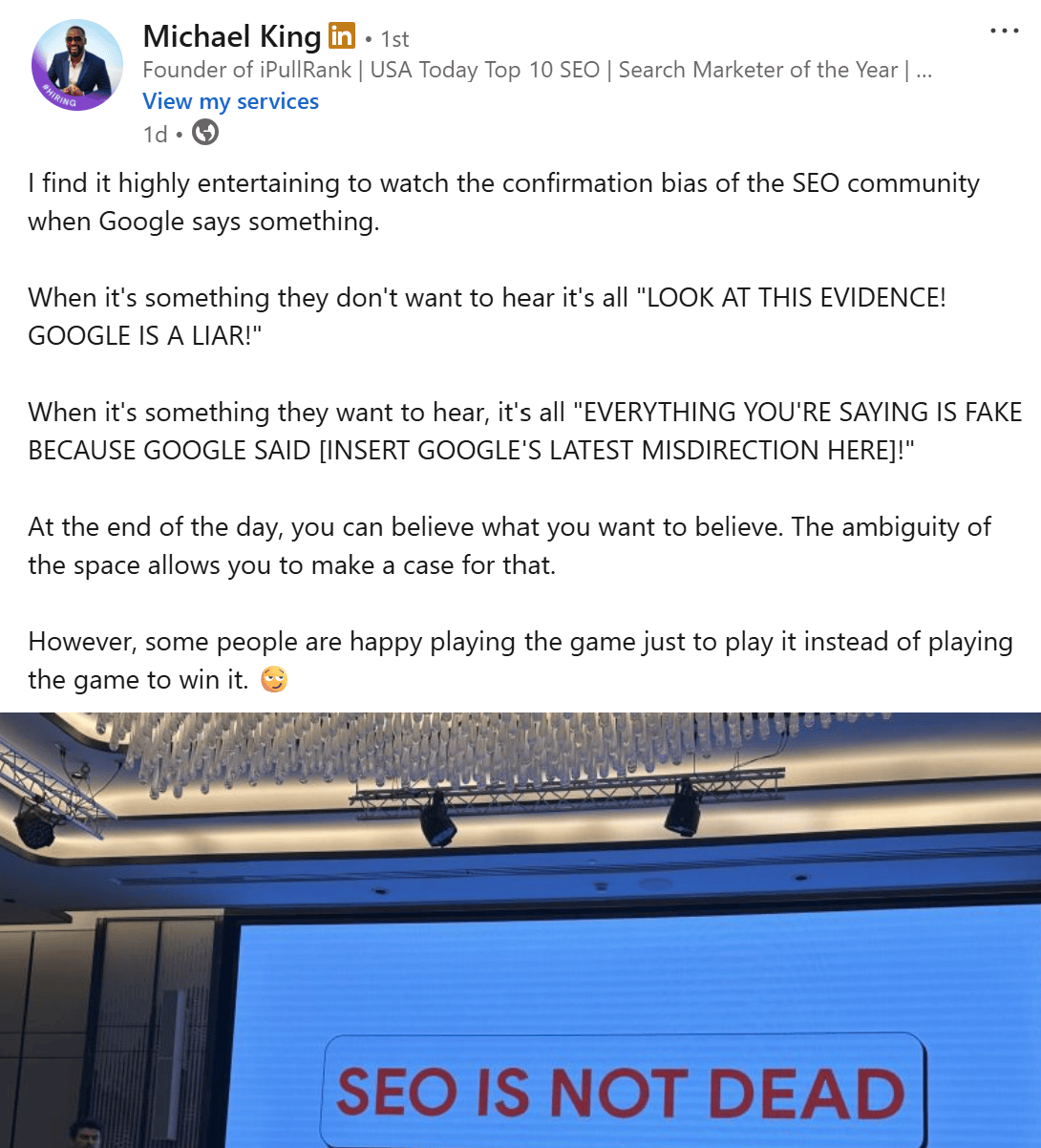When Programmatic SEO Backfires
Today's newsletter is sponsored by AirOps and today they're launching their latest release! Their AI Search Visibility Platform which tracks how well your brand is mentioned and cited in AI-generated answers across platforms like ChatGPT, Perplexity, and other AI search engines!!!
Signup & test drive the tool using my affiliate link
—>here <—
Just another day in SEO… and yet another Google bloodbath.
Miquel Palet posted on LinkedIn earlier this week how their website got penalized by Google. What, why and how? that's what I'll chat about in today's newsletter with my special take!
TL;DR
What is programmatic SEO
GetInvoice created tons of ai generated informational pages, gained tons of traffic and then, just like that, it was all gone 🤷
Programmatic SEO as a process is NOT the problem. It's the type of pages that they created (informational) and the fact that it was 100% ai generated with no human review.
Want to see a successful programmatic SEO approach? look at airbnb for example.
Bottom of funnel, conversion pages are more likely to benefit from programmatic SEO.
It's also not about creating too many pages in a short amount of time, it's purely about content "quality".
What is Programmatic SEO?
Programmatic SEO is a strategy that uses automation to create large volumes of web pages targeting long-tail keywords. It relies on templates, structured data, and scalable content to drive organic traffic at scale, making it ideal for sites with many categories or data-driven pages.
The Tea 🍵
What happened to the website: GetInvoice?
In their own words "we went all in on programmatic SEO. We created thousands of pages using AI, targeting long-tail keywords we knew our ideal users were searching for."
What type of pages they created?
They created blogs about refund policies for different brands.
They scraped the return policy of each brand
Ran the content through ai to be converted into a clean blog post
Published automatically on the domain
The approach worked for a while getting them millions of clicks and impressions. Their users came explicitly from SEO.
I mean look at that graph BEFORE the drop:
But then.... Pages started getting deindexed and traffic plummeted overnight. This feels like another GeekforGeek story, only their downfall was for another reason (they've recovered now by the way)
Why did their traffic grow, THEN drop?
Ok first rule of fight club, if you create a lot of pages at once and get them indexed, chances are you will get a spike in traffic. I've seen it over and over... launching a lot of pages at the same time WILL GET YOU INITIAL SPIKE IN TRAFFIC.
The question is will it last? nop it won't.
Launching tons of pages has always been associated with using AI content at scale. Is using AI content bad for SEO? Not always. There are ways you can use AI to write good content.
But that's not what happened with GetInvoice.
Strike one: They released the pages in a totally automated manner with no human review.
Strike two: the pages are low quality because it's just rehashed content. If the content was "okey" they may have gotten away with it. But it's proven over and over, 100% ai generated content is rarely good enough.
Strike three: the pages were informational pages. You may be wondering what's wrong with that Sara? We shouldn't use programmatic SEO for informational pages? Ya you shouldn't imo😄
If you want to read their analysis, check their blog here.
Programmatic SEO IS NOT THE PROBLEM
I'm having this as a separate section because it's very important to make this distinction. Programmatic SEO is not innately spammy. The quality of content is the problem.
Word on the street part of this website's problem is creating too many pages in a very little time, I don't believe this is the problem. The quality of the content created IS the problem.
Want proof?
Look at flight booking websites, some of which I worked on in the past, flights-to and flights-from pages are templated, automatically generated, sometimes with not much meaningful text if any at all, and as someone who helped create those in the past I'm telling you, they work just fine!
And those are not the only examples out there!
Take airbnb, do you think they create each page manually? 😄 think again!
The problem was never about the number of pages that were created in a short amount of time, nor about the way they were created, it was about the page quality and content type.
Creating low quality informational content will not work and 100% ai generated content fit that bill most of the time. Be it single pages, or pages at scale... it's all the same... your chances of losing traffic is very high.
And That’s a Wrap (Almost 😄)
Programmatic SEO is not innately bad for SEO, not ai generated content btw if done the right way. The traffic drop is for the overlap of multiple of factors:
100% ai content
no human contribution
creating informational content
The perfect way to cause an SEO disaster! Each of these approaches are good and valid in certain situations, but all together, I don't see how they can work long term and generate sustainable results.
Also, let's not take everything at face value ppl! Why do we do that? 😄
This reminds me of Mike King's post about confirmation bias in SEO:
That's that for today folks! It's been a great busy week for me so far! If you have not already, check out my latest blog on SEL: The hypothesis-driven SEO approach.
*Disclaimer: This blog is mostly written by ME with little ai assistance😄

